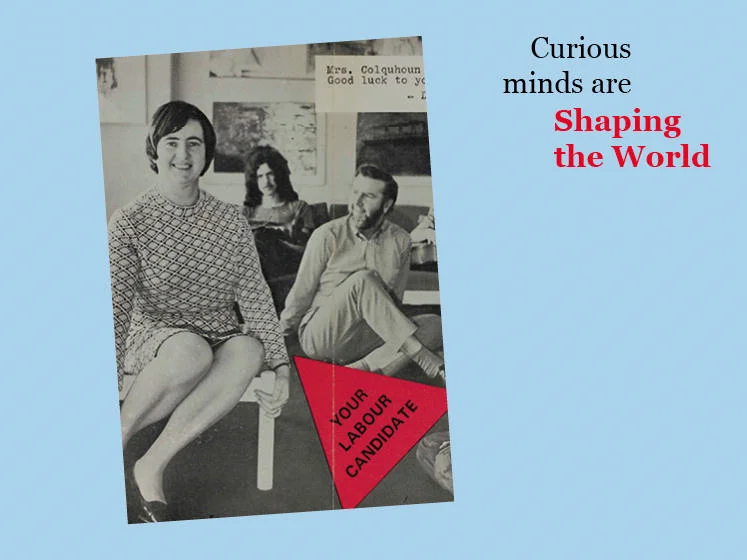Maureen Colquhoun
BSc Economics 1940s

Women’s rights activist and former Labour Member of Parliament for Northampton North Maureen Colquhoun (1928-2021) was elected to the House of Commons in 1974. She became the first openly gay woman to serve in Parliament after coming out a year later. Maureen studied at LSE in the mid-late 1940s and served as a local councillor before her election as MP.
On entering Parliament, Maureen immediately emerged as a leading voice for women’s rights, working tirelessly to end discriminatory practices preventing women from active participation in public life. Among the many issues for which she campaigned were the abolition of women’s prisons, abortion on demand, creche facilities at political conferences and the decriminalisation of prostitution. Maureen’s was disappointed at the distinct lack of feminism amongst her fellow MPs, commenting in her book A Woman in the House: "There was no willingness to dismantle the patriarchal society because many of them hadn’t heard of it!"
Once her relationship with Barbara Todd, then publisher of lesbian magazine Sappho, became public knowledge a motion was put to a constituency General Management Committee (GMC) meeting demanding Maureen be removed as candidate for Northampton North at the next General Election and six months later the GMC voted by 23-18 to deselect her. In a reactionary piece published in New Statesman, Maureen laid bare the flawed democratic practices and homophobia present throughout the local party hierarchy and announced her intention to challenge the result of the vote, telling Woman’s Ownin 1977 that "being a lesbian has ruined my political career".
Maureen won her appeal in January 1978, however at the 1979 General Election Maureen lost her seat to Conservative candidate Antony Marlow, in the election that brought the first woman prime minister into office. In one of her final acts in Parliament, Maureen presented the Protection of Prostitutes Bill to the House of Commons, where she brought 50 prostitutes to the committee room for the bill’s First Reading. In 2017 she received a letter of apology from the constituency acknowledging "the very great contribution" she had made.